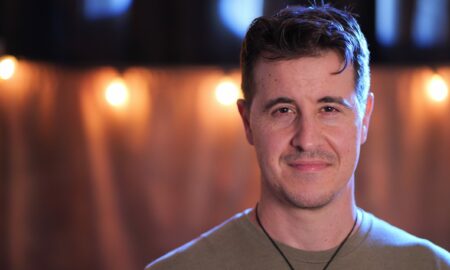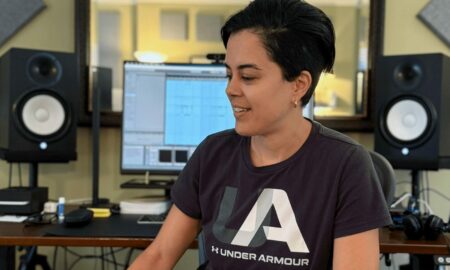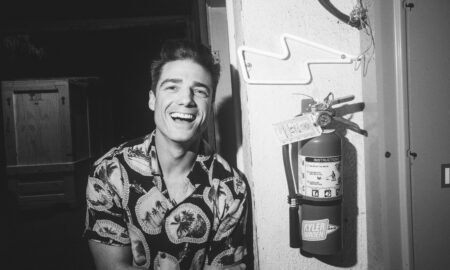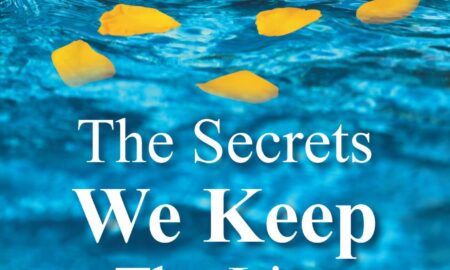

Today we’d like to introduce you to Jo Ellen Fletcher, LMFT #85238. We were introduced by the very insightful Menije Boduryan.
Jo, we’d love to learn more about you, both personally and professionally. Before we dive into specific questions about your practice, perhaps you can tell us a little bit of the backstory and how you got to where you are today?
Starting off as a college student in the mid west, I wanted to study psychology and my father (1960s authoritarian mentality) ordered me to college to be a fine support to an executive husband one day. Even thought I pledged my alliances to the newly emerging women’s rights movement, I didn’t quite have the stamina to go against my father’s wishes. I attended a state school and studied fine arts, married a man and had a family as I was told.
Entering into the work force as my children grew more independent, I continued to explore the field of psychology becoming an Administrator for 5 psychoanalysts and psychiatrists. My tasks included implementing test materials to measure and understand PTSD. In fact one of the psychiatrists in the practice was the President of the International Society for PTSD. I was honored to assist him in his work. In the early 1980’s and working with Vietnam vets I was implementing tests in the study of PTSD. Not only studying war veterans but other catastrophes such as Chernobyl survivors and The Beverly Hills Supper Club Fire and those survivors. After ten years in this job, with focus in the field of psychology, a divorce later, I moved to California where my daughters were attending college.
I made an honorable decision and used what funds I had at that time to return to college and obtained my masters degree in psychology. A true dream for me and and I never looked back. I was finally doing what I truly loved and became a marriage and family therapist. As I progressed in my intern years, I not only sought to work with many different types of diagnosis from the trauma based injuries as I had been familiar, I began working in residential treatment facilities. Treating those with addiction and co-occurring issues. My training came by being immersed in the population at the inpatient level, following the client from the admission to discharge process. Coping with drugs/alcohol to numb overwhelming emotions was forefront as well as identifying the origins of the disease in each family system.
Working as a treatment team I learned much about how each clinician can contribute to the well health of a recovering addict. From there my focus became psycho-education of affect/coping (DBT), cognitive behavioral therapy and attachment theory as it contributed to the origins of the disease. Many years of residential inpatient and outpatient work I made the decision to leave that level of treatment work in a private practice. My special focus on addiction soon evolved to many different types of family, individual and couples work. My focus and extra training continued in attachment theory and affect. I work as a therapist who believes healing comes along with compassion, safety and a nonjudgmental holding environment provided in the treatment room.
Can you tell us more about your work as a therapist? Is there a particular type of client or situation/dynamic/issue that you specialize in or have had great success with? How should someone who might be considering your services evaluate whether they need to see a therapist and whether a given profession is the right fit for them?
My greatest strength today is working with couples and continuing training in Emotionally Focused Attachment Theory. Listening closely to couples who cannot communicate without getting into dysfunctional patterns of behaviors which keep them stuck, polarized and unavailable to each other. Defending and blaming seems to be the common pattern of many. Deep listening, becoming vulnerable, identifying old triggers which create walls and coming towards each other with friendship, respect, and vulnerability. It’s not a quick fix when couples come in and seek the therapist as an ally rather than remembering they once were that for the other. I find it so satisfying to teach others to rebuild lasting bonds and understand the science of love and how it really makes sense. That is my specialty. That is the gift I offer to each individual who comes to therapy.
As you know, we’re big fans of Menije Boduryan and we know you’ve worked with her quite a bit as well. We’d love to hear about your experience working with Menije. What types of clients would benefit most by working with her and what kind of experience and/or benefits can they expect when working with Menije?
I first met “Dr. B.” as we called her, when she was hired as a primary therapist in the residential inpatient and outpatient treatment facility. A new and rapidly growing treatment center, we had an excellent group of therapists who treated the clients. In residential treatment, there were 6-8 clients who began their detox and recovery process living in a large estate home in Calabasas, Ca.
When Dr. B first came to work at the treatment center, I thought to myself, “OMGosh, she is so poised and has so much knowledge and felt a bit intimated at her title and experience. However withing a day’s time, her warmth, support and connection to me as a clinician created not only a good friendship but I was inspired by her leadership and knowledge. I remember many days thanking her for her support and friendship as I told her how I felt when she first came to the treatment center. Providing a safe place as a colleague, I realized how good each client who was assigned to her must feel. Very safe, heard and willing to work on the goals in their treatment. Developing an awareness of accomplishments is one of her means of inspiring clients to continue forward in their path towards well being.
The clients loved her as she would challenge them with her directness and also provided positive strengths when they were unable to cope with shame and depression which often is part of the recovery process. Dr. B and I would sit at the end of the day in one of the offices and discuss our groups, and she provided much leadership in her thoughts and ideas about each client regardless of other clinicians who may have other ideas. Doing 4-5 group sessions each day, we then had clients assigned to us to follow from inpatient to outpatient and discharge providing an aftercare plan.
Sharing ideas for interventions during the group process and coordinating and building upon each other’s group is only one of her talents. Dr. B supported her insights with evidence and could respectfully discuss aspects of cases and arrive at common treatment interventions. Putting clients first and discussing behaviors, attitudes and feelings and making each individual special in their treatment goals. Dr. B identified both short and long term objectives and a depth of understanding of personal relapse triggers and developed individualized treatment strategies for each of her clients. Dr. B. put in many hours of time to work on treatment plans and client needs. Dr. B moved rapidly from primary therapist to Clinical Director of one of the growing facilities. There she led the team, quite a difficult challenge to balance and manage the client needs, insurance requirements, financial requirements and those of owners who may not understand the ethical requirements of a clinician. Dr. B. was and is well liked and well respected, setting firm and fair boundaries with clients, and managing and directing other clinicians in the same aspects.
Looking back, is there a memory or experience from childhood that you are particularly grateful for?
Growing up in the Midwest and feeling the family atmosphere and safety and then being able to dream about a life in California, and making that dream happen. Experiencing such culture changes from Ohio’s’ life of making smores, family picnics, and catching lightning bugs to experiencing the beauty of the Malibu coast, great music and food, beautiful mountains and the diversity of so many different cultures!
Contact Info:



















